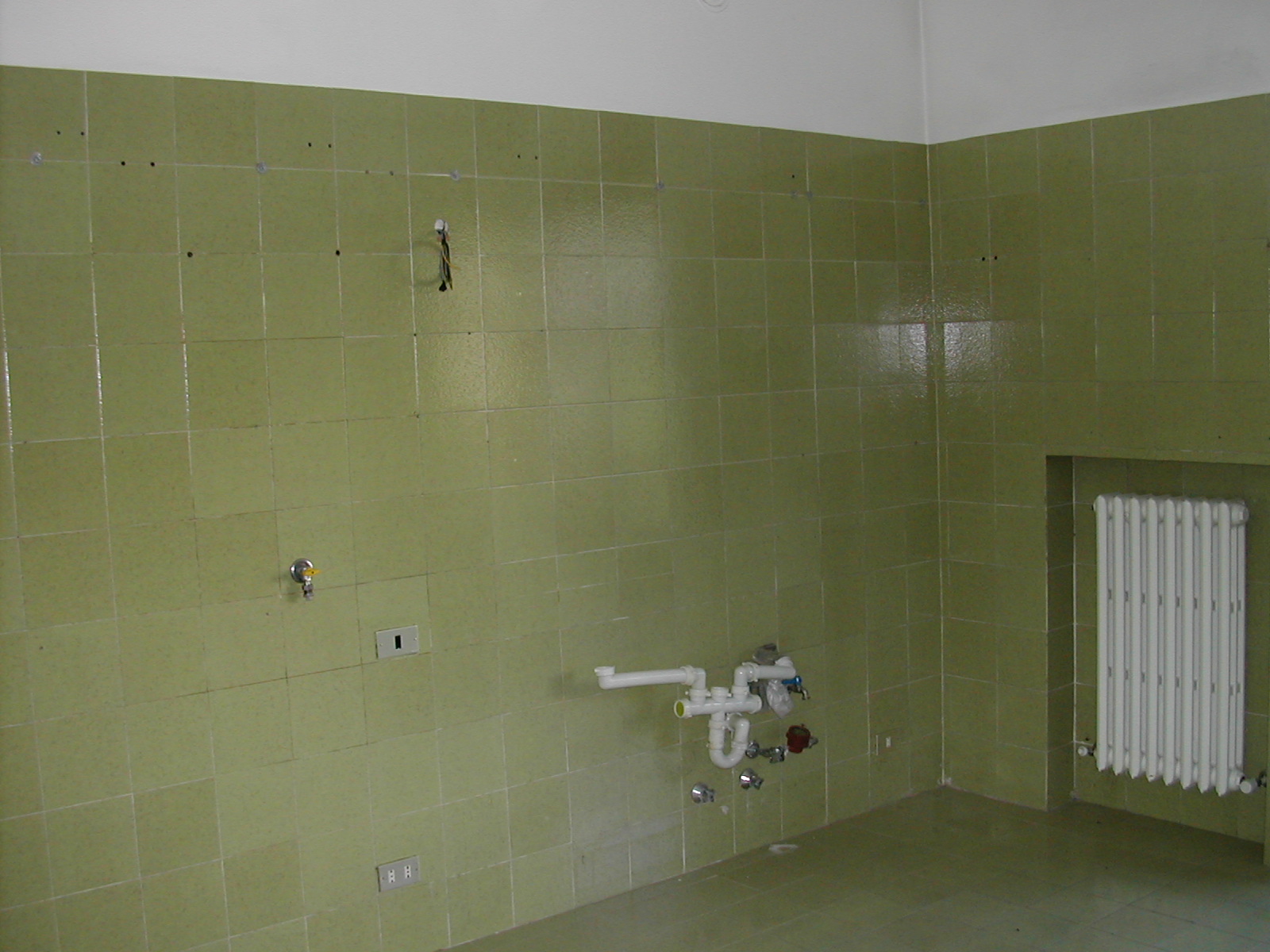When I mentioned that we were moving, one of my readers asked for more details on my statement that “[moving is] such a huge expense and hassle in Italy that nobody willingly moves often.”
In case the information is useful to others, here are some of the steps involved in buying a home and moving into it in Italy:
When you buy a property, there are so many legal/tax hoops to jump through that you have to hire a notaio (something between a notary and a lawyer), who is expensive, though a big chunk of what you pay him is the sales tax on your new property. Even if you could legally do without the notaio’s services (I’m not sure), you shouldn’t – it’s his job and legal responsibility to ensure that you don’t get taken for a ride in any of a thousand possible ways. For example, illegal construction is widespread in Italy, in part because it can be very difficult to stay within the letter of the law when building. When you buy a home, you are liable for any legal penalties that come up during your ownership, even if the illegality occurred long before you took possession. Part of the closing contract states that you are aware of this fact, so you want to make sure the place is legal when you buy it.
The contract between sellers and buyers is long and complex, full of references to other documents – surveys and descriptions of land, building permits, etc. At our closing (rogito), the notaio read out the contract line by line, number by number, sometimes dropping into a sing-song that reminded me of Tibetan monks chanting. He made a few changes and filled in a few blanks; the whole process took about an hour. Then all parties signed, and the house became ours. (Yes, there was a minor matter of payment as well!)
Once you take possession, the first step to make a new home habitable is to paint it. Even when renting, Italians usually stay in the same home for years so, when you move in, it badly needs painting (and holes in the walls from the previous owners’ pictures, shelves, fixtures, etc. need to be filled). Water-based paint is used in Italian interiors, which is a lot easier to work with – no turpentine needed, spills are easily wiped away, and it dries quickly. Painting took two days (five man-days) and it will be thoroughly dry for Monday’s move-in.
As I have mentioned (see also this article), even most rental units are completely unfurnished – the kitchen will be absolutely bare, with just pipes sticking out of the walls. This means that you have to build in a kitchen, with all appliances, cabinets, etc. We did this just last year when we moved into the apartment we’ve been renting in Lecco. For that move, we were able to re-use two large units we had in Milan, one of which holds a built-in fridge. We added matching pieces from Ikea, plus a sink, a new stove, and a dishwasher. We hired a carpenter to put everything together, cut counter tops, etc.; he spent the whole time bitching about the poor quality of Ikea furniture. And he was right: both shelves of the rotating wire rack in our corner cabinet broke – one within three days, the other in a month or two. We could have gotten a replacement at Ikea, but that would have meant taking the piece out and carrying it back to them – not worth the trip.
Our new house is only four years old, and the previous owners had spent a lot to build in a kitchen with tile surfaces. I don’t particularly like the color (yellow) or the cabinets (too few, and badly arranged), and my beloved big oven won’t fit – they designed their kitchen for a built-in stove top and oven, not a stand-alone. However, it would cost too much time and money to redo the kitchen entirely right now; that will have to wait a few years.
We had hoped to resolve the kitchen problem painlessly by buying (at a suitable discount) the appliances that were already there, but the seller took them away in a fit of pique at his wife (they’re divorcing), so now we’re scrambling to fill the holes where the stove top, oven, and sink used to be. At least our existing dishwasher will fit the dishwasher space.
We don’t need to buy any other furniture, just move what we already have. And that’s a lot, since last summer we consolidated everything from our home in Milan with a lot of what had been in Enrico’s parents’ place in Rome.
There’s almost no such thing as built-in closets in Italy, so you’ll be buying or moving huge heavy wardrobes, in addition to the usual household furniture. In our case, there’s also a piano.
I have already packed about 50 boxes of various sizes, need another 40 or so – we have so many books! I don’t have any newspaper to wrap stuff in because we don’t read that much physical newspaper. So I’m using every piece of clothing and linen we have to wrap the breakables. Oh, well, this is more ecological – fewer boxes, less to move, less to recycle in the end.
The movers arrive Monday, with a truck-mounted crane which they’ll park outside the building and raise up to our fourth-floor balcony to get everything out of the apartment. This is the usual practice, because there’s no such thing as a freight elevator in most Italian apartment buildings.
When we moved last year, because we were bringing stuff from both Milan and Rome, we did not hire a crane, so we had to bring everything up in the elevator or by the stairs. In the process, the fake leather covering inside the elevator was slightly damaged, damage which somebody in the building took delight in worsening by ripping great gashes. We got blamed for all of it, and had to pay to refinish the elevator. I had an unpleasant conversation with the very snippy building administrator: “Since you’re foreigners, perhaps you don’t realize that this is not how things are done in Italy. We don’t use the elevator for moving.” (He assumed from the surname that Enrico was also foreign.)
A few days ago, Enrico called the administrator to ask if we could use the building’s courtyard to bring in the crane and truck. The man came rushing over to tell us that the pavement of the courtyard is built over the garage and isn’t very strong – a heavy truck could fall right through. Enrico saw his point, and quickly agreed to use the outside balcony instead, and not bring a truck into the courtyard. All fine and cordial, right?
The administrator had written a letter to officially inform us that we could not use the courtyard, which I suppose is useful to him legally in case we misbehave. He could have simply delivered a copy of this letter to us, along with his verbal warning. Instead, he taped the letter on the entrance door downstairs – making a public statement that he doesn’t trust us to keep our word, and implicitly asking the neighbors to report us if we don’t. What an asshole. As soon as we are out of this place, we’re going to write him a letter and post it on the door – after all, that’s his preferred mode of communication. And, since he so despises me for being foreign, I’ll use a few choice phrases in plain-speaking American; he can find his own translator.
Anyway, about moving…
Utilities also have to be “moved”. I called Telecom Italia two weeks ago, and they told me it’s a good thing I called so early, because the waiting period to move a phone line is currently 20 days or more. We’ll need a technician to come to the house to open some more plugs – there’s a slot but no actual plug in the room which will be my office, where the wireless modem/router will live. At least the gas and electricity were fairly simple; Enrico had to go with the previous owner to the two offices to officially “turn over” (voltura) the services to us.
There is also government bureaucracy to deal with. Not too long after you move, you have to go to the ufficio dell’anagrafe (population records office) at the town hall and let them know your new address, partly so they can find you to give you voter registration forms when elections come up. In another form that we filled out with the notaio, we had to stipulate how many exterior doors there are on the house. The notaio phrased it this way: “If the carabinieri raid you, how many men will they need to cover the exits?” I’m not entirely sure he was joking.
For the moving out, we have to empty all shelves, cabinets, closets etc. by early Monday morning. The moving team will then come in and disconnect everything, including light fixtures, load it in the truck, carry it up the hill, and unload it, hopefully into the correct rooms.
Moving in will require several workmen. We’ve ordered new kitchen appliances, which a plumber will install Tuesday or Wednesday. (Anything with gas must be officially certified safe by a professional plumber.) He will also need to hook up the washing machine in our basement laundry room.
| shot ~Sep 24, 2004, 0:32 mins, 1.5 MB | ||
| The electrician helped us move the crystal chandelier. Last year, moving it from Rome, Enrico took it completely apart and made a careful diagram of where all the pieces went. Nonetheless, it took about three hours to reassemble and hang it. So this year the electrician took it down in one piece and hung it, still intact, in the back of his truck. Then he and Enrico carefully drove it up to the new house and hung it right back up again. | ||
Next week he’ll come back to re-connect all the other lights, and will also help us hang paintings since he’s handy with a drill. Hanging things isn’t easy: the walls are brick or concrete, so for heavy objects you need to drill holes and line them with plastic sleeves (tasselli) to anchor large bolts. Tall bookshelves are also best bolted into the wall to prevent them tipping over, especially if you live in an earthquake zone.
Finding reliable people to do all this can be difficult. Anyone who wants steady, lucrative work in Italy should consider becoming a plumber, electrician, or painter.
I will be offline from Monday until whenever Telecom Italia decides to install our phone line, so, when you hear from me next, it will be from my magnificent new studio with a view!
Moving Out…
shot Sep 27, 2004, 2:04 mins
A portable electric crane was set up in the street outside our 4th-floor balcony. All our furniture was taken apart and sent down into the waiting truck.
Moving In… |
| shot Sep 27, 2004, 0:31 mins, 1.4 MB | ||
| There was no place to put a crane at the new house, so anything too big to fit up the staircase was handed up to the balcony. | ||




